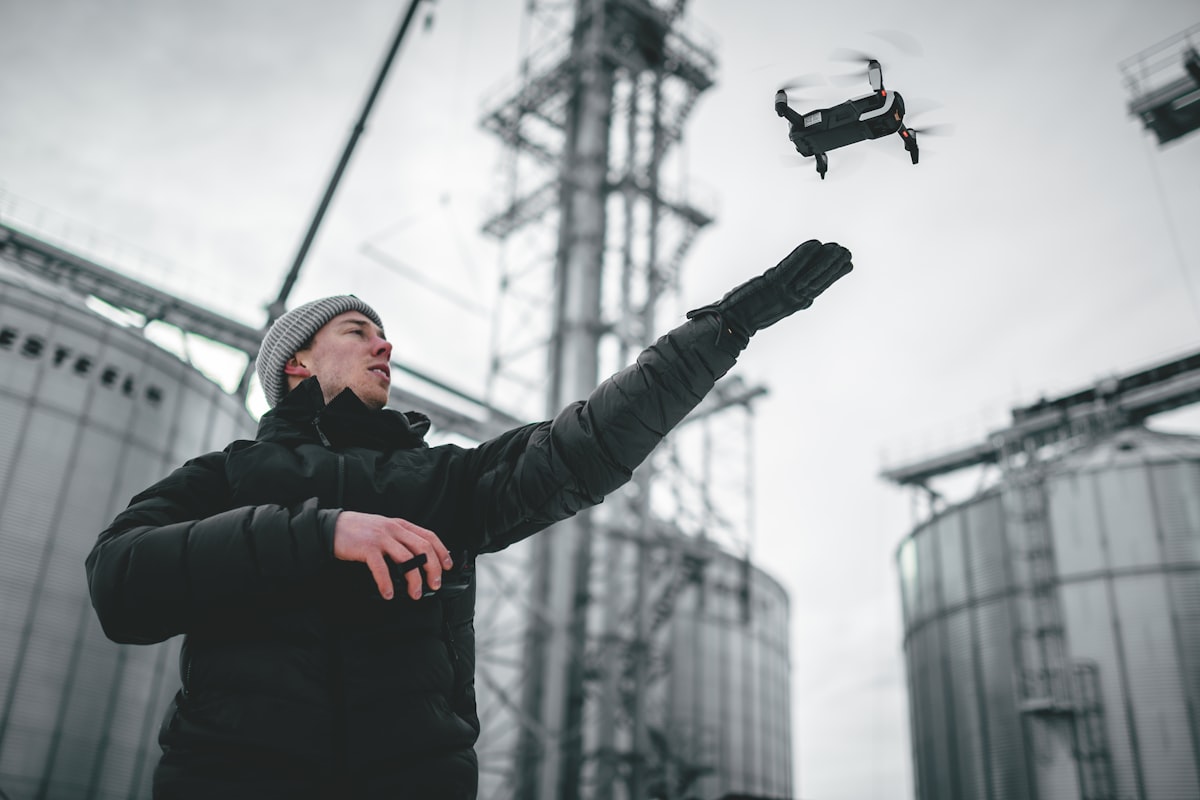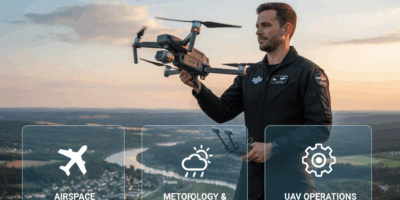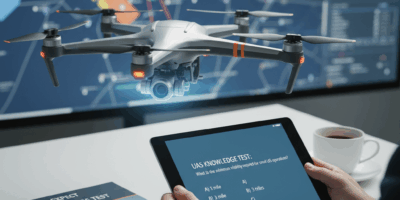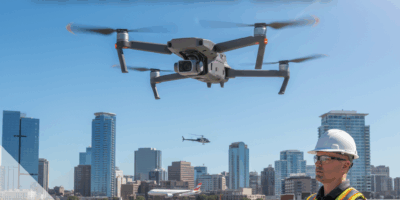Commercial drone certification requirements has gotten complicated with all the conflicting advice, outdated information, and overwhelming details flying around. As someone who’s been deeply involved in the Part 107 and drone operation world for years, I learned everything there is to know about this subject. Today, I will share it all with you.
That’s what makes this topic endearing to us certificated pilots – it gives us practical knowledge we can actually use in the field.
Probably should have led with this section, honestly, but let me break down what you really need to know:
Begin by obtaining study materials from reliable sources. The FAA provides a comprehensive Remote Pilot – Small Unmanned Aircraft Systems Study Guide, which is essential. Other valuable resources include online courses, study groups, and forums where you can ask questions and exchange information with other aspiring drone operators.
Focus Areas for the Knowledge Test
Understanding the topics covered in the exam is crucial. The test includes questions on regulations, airspace classification, weather effects on drones, loading and performance, and emergency procedures. Familiarize yourself with each area thoroughly:
- Regulations: Study the Part 107 rules and understand operational limitations, special circumstances, and your responsibilities as a remote pilot.
- Airspace Classification: Learn about the different airspace classes (A, B, C, D, E, G) and the operating requirements for each. Understand how to read sectional charts.
- Weather Effects: Grasp the basics of meteorology, including weather patterns, wind, and temperature effects on drone flight.
- Loading and Performance: Understand basic principles such as weight and balance, impacts of center of gravity, and performance limitations.
- Emergency Procedures: Know what to do in the event of a lost link, system malfunction, or other in-flight emergencies.
Practical Training and Experience
Theoretical knowledge must be paired with practical experience. Spend time flying your drone in different conditions to get a feel for its capabilities and limitations. Practice maneuvers, understand how your drone responds to controls, and get comfortable with various modes and settings.
Flight Log Maintenance

Keep detailed records of your flights. Include information such as date, location, duration, weather conditions, and any incidents or irregularities. This habit can help you review and improve your skills and is also useful when applying for waivers or as proof of experience.
Preparing for the Test Day
Schedule your test at an authorized testing center. Review all study materials regularly leading up to test day. On the day of the exam, make sure to bring necessary identification and required documentation. Arrive early to minimize stress.
Continuing Education
Earning your certification is just the beginning. Stay updated with changes in regulations and emerging technologies. Join industry groups, attend seminars and workshops, and consider advanced certifications to expand your expertise.
Certifying as a drone operator demands dedication and thorough preparation. Equip yourself with the right knowledge and practical skills to succeed. This achievement will not only affirm your readiness to handle professional tasks but also enhance your credibility and opportunities in the evolving field of drone technology.
“`


